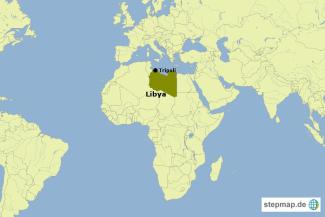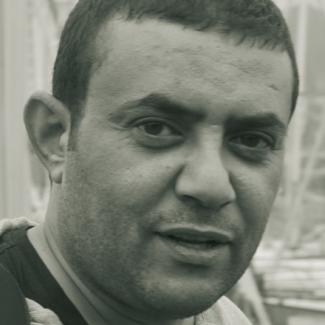Media
Persecuted journalists

Local journalists are exposed to uncontrolled militia violence in Libya. Such groups control Tripoli, the capital, and they tend to be stronger than the official security forces.
Last July, the Libyan Marine Force invited journalists of the international news agencies Reuters and AFP to come to the Tripoli port to take photos of a boat with migrants. Four journalists went there and started doing their job. They were suddenly attacked and arrested by an armed group. The men belonged to the militia who controlled the port. The journalists spent a terrible night at a cell with the militiamen insulting them as spies. The next day, the agencies they worked for managed to have them released.
Security forces, however, can be a problem too. In December 2018, a Libyan court in Ajilat, a town west of the capital Tripoli, sentenced Muktar Al-Halak to one year in jail plus a € 50 fine. The prison sentence was suspended. The 44-year-old journalist and photographer was accused of publishing “security information”.
“I was shocked,” Muktar recounts. “I asked the judge on what basis they had decided that I was guilty. He replied by advising me to quit journalism and find another kind of work.”
Muktar had been arrested illegally by the Security Directorate of Ajilat and locked up for 11 days. “These were the most terrible nights of my whole life,” he says.
“The arrestment procedures were false,” maintains Reda Fhelboom, the chairman of the Libyan Organisation for Independent Media (FOIM). He points out that, according to a Libyan law, there are special rules for detaining a journalist: a clear complaint must be submitted, then the minister’s permission must be obtained, and the minister must assign the attorney of journalism to investigate the case.
Jalal Othman of the Libyan Institution for Investigative Journalism (LIFIJ) points out: “Also, there is no journalists’ union which could support our colleagues when they are threatened.” He bemoans a general lack of capacities and capacitybuilding: “There are still no real media institutions in Libya which are able to develop skills of journalists and link them with the outside world.”
Libyan journalists also suffer due to their low pay, and that includes those who are in government employment. Jamal El-Zaidi, who works for the Journalism Governmental Board of Libya, explains that the salaries are calculated according to a law that was passed more than 30 years ago and states that salaries cannot be increased: “Due to this, journalists are unable to feed their families, because prices are rising, but their income is still the same as years ago.”
Moutaz Ali is a journalist and director of the “Libyan Institution for Investigative Journalism” (LIFIJ). He lives in Tripoli, Libya.
ali.moutaz77@gmail.com
LINKS
Libyan Organization for Independent Media (FOIM)
https://m.facebook.com/LOFIM.ly/
Libyan Institution for Investigative Journalism (LIFIJ)
https://m.facebook.com/lifij.ly/?locale2=ar_AR









